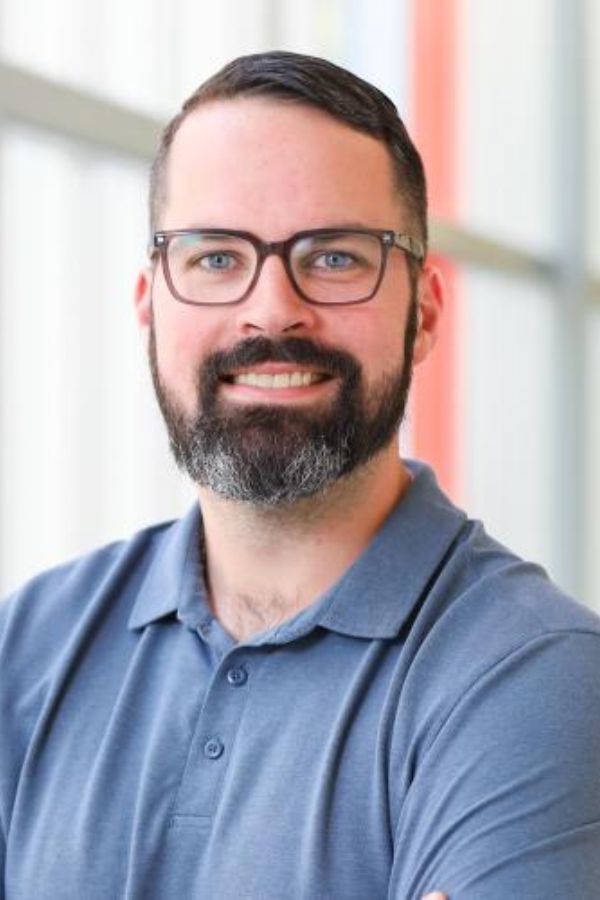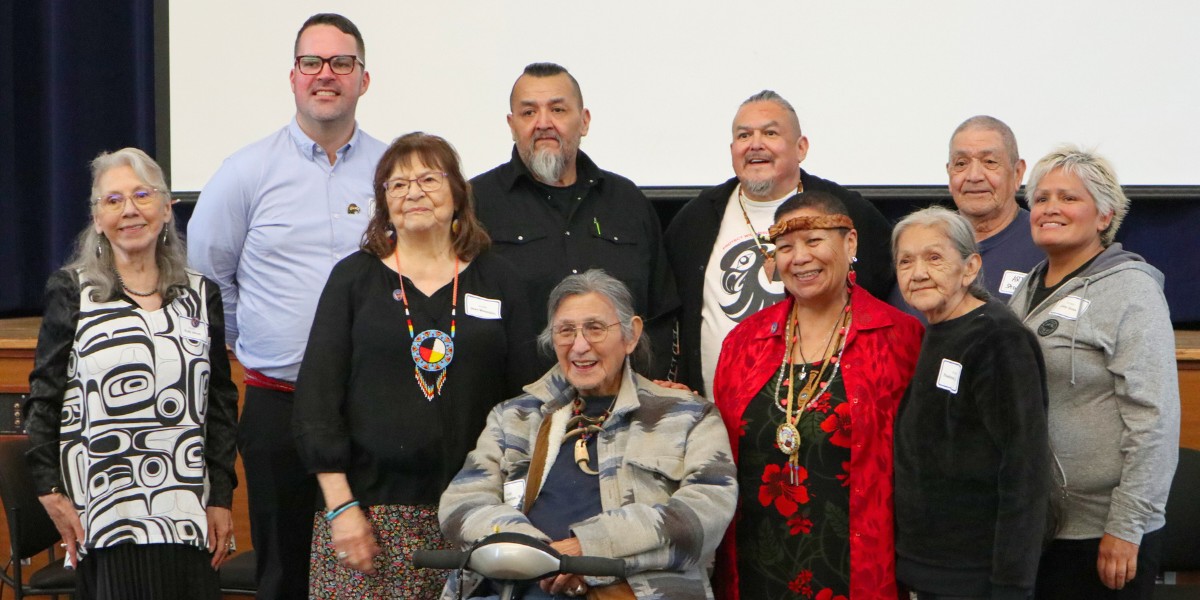Indigenous children are the fastest-growing population in Canada but still experience disproportionately negative health outcomes. A 2020 report found that, compared to the non-Indigenous population, First Nations children were twice as likely to be born very preterm (at less than 32 weeks gestation), putting them at risk of lifelong health problems. During the same reporting period, First Nations and Métis children aged 17 years and under were 1.5 to two times more likely to have five or more concurrent health conditions.
“Every child deserves to have their health needs addressed and their potential future health problems prevented.” — BCCHR Statement of Integrity

This story takes a closer look at an important initiative the BC Children’s Hospital Research Institute (BCCHR) has undertaken to close health-care gaps like these and work toward justice and equity in Indigenous child health.
To enact BCCHR’s commitment to grow and invest in Indigenous child health research and adapt its research practices through Indigenous partnerships, the Institute has created a network of researchers, clinicians, and Indigenous advisors called the Indigenous Child Health Knowledge Super Hub.
BCCHR Investigator Dr. Scott Ramsay (BC Métis Nation) is co-leading the Super Hub with Dr. and Elder Roberta Price (Coast Salish Snuneymuxw and Cowichan Nations) and BCCHR Senior Executive Director and Investigator Dr. Quynh Doan
Dr. Ramsay shared why the Super Hub is needed: “It’s multi-layered,” he says. “There has historically been a lack of Indigenous child health research. Additionally, BCCHR and other research and health-care institutions have not always been safe spaces for Indigenous people to self-identify, be they researchers, health-care workers, or community members.”
A lack of safety also extends to physical spaces. Dr. Ramsay explained that Indigenous people aren’t reflected in and may not feel welcomed by the built environment of many research and health-care facilities. Some of this mistrust can be traced to abuses against Indigenous Peoples in colonial institutions, including the foster care system, residential schools, and racially segregated and under-resourced Indian hospitals, as well as practices such as medical experimentation and forced sterilization.*
Indigenous Ways of Knowing and Ceremony
The Indigenous Child Health Knowledge Super Hub has three overarching priorities, according to Dr. Ramsay, the first of which is to bring Indigenous Ways of Knowing and Ceremony into research. Indigenous Ways of Knowing recognize the interconnectedness of body, mind, and spirit and emphasize a holistic view encompassing ancestral and land-based knowledge, protocols, and medicines.

In April 2025, a Blessing Ceremony was held to commence the work of the Indigenous Child Health Knowledge Super Hub as well as other BCCHR Super Hubs working on Indigenous child health priorities, including the Digital Health & Data Analytics Super Hub and the Community Partnership Super Hub. Overall, the Ceremony marked a new chapter in BCCHR’s commitment to culturally grounded, collaborative health knowledge that supports Indigenous children and families and signalled our readiness to cultivate cultural safety and embrace Indigenous Ways of Knowing.
“The Blessing Ceremony created a space to acknowledge prior gaps in Indigenous child health research at the Institute,” says Dr. Ramsay.
“It was also important for us to acknowledge where we are geographically located and engage the three host nations in Coast Salish protocols for beginning our work on these territories.” — Dr. Scott Ramsay
The Ceremony was recommended by Super Hub Co-Lead Dr. and Elder Roberta Price and led by her, Elder Thelma Stogan, Elder Sam George Sr., Elder Jean Wasegijic, Elder Lissy Guss, Elder Art Stogan, Elder Ruth Alfred, and Elder and Knowledge Keeper Sam George Jr., along with Knowledge Keeper Les George. The Blessings they offered symbolize the removal of any negative energy surrounding the Super Hub’s work to come, ensuring a positive and respectful journey ahead. BCCHR investigators, staff members, and invited guests served as witnesses to hold BCCHR accountable to our commitments.
Two-Eyed Seeing and Indigenizing concussion prevention
When he’s not leading the Indigenous Child Health Knowledge Super Hub, Dr. Ramsay conducts research on neurological conditions, including those caused by injuries. His recent call to action in Paediatrics & Child Health provides another example of bringing Indigenous Ways of Knowing to child health. In his commentary, Dr. Ramsay notes that Indigenous youth in Canada have a higher rate of concussion than non-Indigenous youth and have economic and geography-related injury risks, such as greater distances from emergency services and lack of safety equipment and prevention resources. There are also distinct risks arising from systemic racism and some traditional activities.
“The current care and supports for Indigenous youth don’t match the frequency of injury.” — Dr. Scott Ramsay
One contributing factor to this disparity may be that current concussion prevention strategies were developed based on research with urban, economically privileged, white male participants. Dr. Ramsay says that to improve equity and effectiveness, concussion prevention for Indigenous children must be culturally appropriate, tailored to their communities, and developed in community-led collaborations between health-care professionals and cultural experts. One approach to doing so might be Two-Eyed Seeing (Etuaptmumk), which is a Mi'kmaw concept that embraces the integration of Indigenous Ways of Knowing with Western science. Dr. Ramsay shared that such approaches can translate very strongly in clinical settings.
A bridge for communities
A second priority for the Indigenous Child Health Knowledge Super Hub is to support those already conducting Indigenous child health research, a practice that Dr. Ramsay likens to a bridge: “Each part serves a purpose, similar to those working with communities, who, by being present, create a sense of safety for the whole. The Super Hub itself won’t necessarily be conducting the research, but will instead act as a facilitator to support the research to unfold according to community needs.” The Super Hub as a whole will uplift those who are carrying out the research, help bring it back to community, and translate it back to clinicians and health-care researchers.
In this way, the Super Hub can shine a spotlight on health issues that are directly impacting Indigenous children. This, in turn, can lead to increased awareness and may enable the identification of shared concerns, such as certain health conditions or types of injuries occurring at higher rates in multiple communities.
“It’s about empowering community. We want to facilitate Indigenous Peoples’ sovereignty over data and issues, and create community-led solutions.” — Dr. Scott Ramsay
Engaging and supporting the next generation of Indigenous child health scholars is the third priority of the Super Hub, some of which will be accomplished through direct mentorship and scholarships to emerging Indigenous scholars.
Guided by Elders and Knowledge Keepers
One of the Indigenous Child Health Super Hub’s first projects was to establish an Elders Advisory Circle, including Elders from xʷməθkʷəy̓əm (Musqueam), Sḵwx̱wú7mesh (Squamish), and Səl̓ílwətaʔ/Selilwitulh (Tsleil-Waututh) Nations and other First Nations across British Columbia. With their rich, combined experience in Indigenous health research, the Advisory Circle will guide research, policy, and partnerships with Indigenous communities. It is also another way that Indigenous Ways of Knowing will be embedded into the work of the Super Hub and the BCCHR research community.
“Funding mechanisms for initiatives like the Advisory Circle are important because they provide the means to support protocols in a good way,” says Dr. Ramsay. “We want to honour the knowledge, traditions, and oral teachings of our Elders and Knowledge Keepers.”
What’s next?
Looking ahead, Super Hub members will continue to focus on engaging communities, establishing collaborations, and working to translate and mobilize Indigenous child health research. They are also developing protocols for conducting research and opportunities for mentorship, and acting as a resource for researchers and clinicians at BC Children’s Hospital.
“What we’re doing here is building trust and community. We want to engage people, and we want them to recognize the space that we’re creating.” — Dr. Scott Ramsay
Through meaningful engagement with communities and embracing Indigenous knowledge, the Super Hub and the entire BCCHR research community will keep building momentum to address historical wrongs and improve the health and lives of Indigenous children and families in BC, the Yukon, and beyond.
* For further learning, see: In Plain Sight: Addressing Indigenous-specific Racism and Discrimination in B.C. Health Care; The Survivors Speak: A Report of the Truth and Reconciliation Commission of Canada; and Separate Beds: A History of Indian Hospitals in Canada.
The Indigenous Child Health Knowledge Super Hub invites those currently working or interested in Indigenous child health to connect by emailing superhubs@bcchr.ca.




